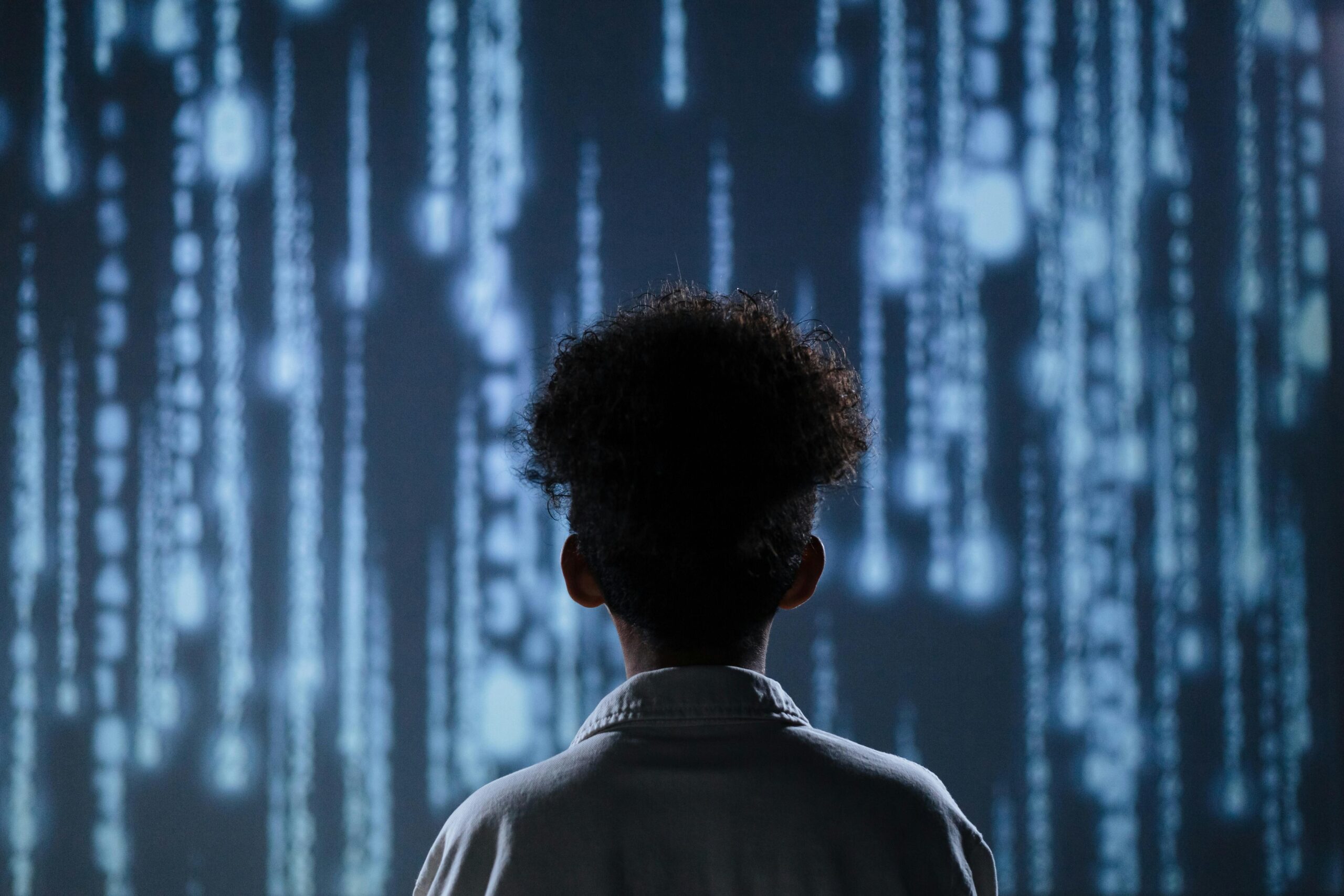The rapid advancement of artificial intelligence (AI) technologies has raised significant concerns and discussions regarding their impact on the labor market. This report reviews recent studies that examine the effects of AI on employment, including job displacement, job creation, skill shifts, and the transformation of work dynamics. Understanding these impacts is crucial for policymakers, businesses, and workers as they navigate the evolving job landscape.
Job Displacement vs. Job Creation
A key concern surrounding AI is its potential to displace jobs. According to a report by the McKinsey Global Institute (2021), it is estimated that by 2030, up to 25% of current jobs could be affected by automation and AI technologies. However, the report also emphasizes that new jobs will emerge, particularly in sectors that require human skills, such as healthcare, technology, and education. This duality highlights the need for a balanced perspective on the future of work.
Citation:
McKinsey Global Institute. (2021). The Future of Work After COVID-19. Retrieved from McKinsey
Sector-Specific Impacts
Research published in the journal AI & Society (2022) analyzed the impact of AI on various industries, including manufacturing, retail, and transportation. The study found that routine manual jobs are more susceptible to automation, while jobs requiring social and emotional intelligence, creativity, and complex problem-solving are less likely to be replaced. This suggests that the impact of AI is not uniform across sectors.
Citation:
Brough, P., & Kalliath, T. (2022). The impact of artificial intelligence on work: A review of the literature. AI & Society, 37(1), 1-12. doi:10.1007/s00146-021-01180-5
Skill Shifts
The World Economic Forum (2020) highlighted the critical need for reskilling and upskilling the workforce to adapt to the changing job landscape. The report projected that by 2025, 85 million jobs may be displaced, but 97 million new roles could emerge that are more suited to the new division of labor between humans and machines. This underscores the importance of education and training programs to prepare workers for future demands.
Citation:
World Economic Forum. (2020). The Future of Jobs Report 2020. Retrieved from WEF
Impact on Low-Skill Jobs
Research from the Brookings Institution (2021) indicated that low-skill jobs are at a higher risk of automation. The study emphasized the importance of policies aimed at supporting workers in transitioning to new roles, particularly in sectors that are more vulnerable to AI-driven changes. This highlights the need for targeted interventions to assist affected workers.
Citation:
Brookings Institution. (2021). The Future of Work: The Impact of AI on Jobs. Retrieved from Brookings
Remote Work and AI
A study published in Harvard Business Review (2022) examined how AI tools are reshaping remote work. The research found that AI can enhance productivity and collaboration but also raises concerns about surveillance and employee privacy. This dual impact necessitates careful consideration of how AI is implemented in remote work settings.
Citation:
Gonzalez, A. (2022). How AI is Reshaping Remote Work. Harvard Business Review. Retrieved from HBR
Long-Term Economic Effects
A report by PwC (2022) discussed the long-term economic implications of AI on the labor market. The study suggested that while AI could lead to significant productivity gains, it also poses challenges related to income inequality and the need for social safety nets for displaced workers. This highlights the importance of addressing the broader economic impacts of AI.
Citation:
PwC. (2022). The Impact of AI on the Labor Market. Retrieved from PwC
Human-AI Collaboration
Research published in Nature (2023) explored the concept of human-AI collaboration, emphasizing that AI can augment human capabilities rather than replace them. The study highlighted examples where AI tools assist workers in decision-making, thereby enhancing job performance and satisfaction. This perspective suggests a future where humans and AI work together synergistically.
Citation:
Kahn, J. (2023). Human-AI Collaboration: Enhancing
Jobs Most Affected by AI
- Manufacturing Workers: Routine tasks in assembly lines are increasingly automated.
- Citation: Brynjolfsson, E., & McAfee, A. (2014). The Second Machine Age: Work, Progress, and Prosperity in a Time of Brilliant Technologies. W. W. Norton & Company.
- Data Entry Clerks: Automation can easily handle repetitive data entry tasks.
- Citation: Arntz, M., Gregory, T., & Zierahn, U. (2016). The Risk of Automation for Jobs in OECD Countries: A Comparative Analysis. OECD Social, Employment and Migration Working Papers, No. 189, OECD Publishing, Paris. doi:10.1787/5jlz9h56dvq7-en.
- Retail Cashiers: Self-checkout systems and automated payment solutions reduce the need for cashiers.
- Citation: Chui, M., Manyika, J., & Miremadi, M. (2016). Where machines could replace humans—and where they can’t (yet). McKinsey Quarterly. Retrieved from McKinsey.
- Telemarketers: AI-driven chatbots and automated calling systems are replacing human telemarketers.
- Citation: Bessen, J. E. (2019). AI and Jobs: The Role of Demand. NBER Working Paper No. 24235. doi:10.3386/w24235.
- Transportation and Delivery Drivers: Autonomous vehicles and drones are being developed to replace human drivers.
- Citation: Fagnant, D. J., & Kockelman, K. M. (2014). Preparing a Nation for Autonomous Vehicles: Opportunities, Barriers and Policy Recommendations. Transportation Research Part A: Policy and Practice, 77, 167-181. doi:10.1016/j.tra.2015.04.003.
Jobs Less Affected by AI
- Healthcare Professionals: Roles such as doctors, nurses, and therapists require human empathy and complex decision-making.
- Citation: Topol, E. J. (2019). Deep Medicine: How Artificial Intelligence Can Make Healthcare Human Again. Basic Books.
- Creative Professionals: Jobs in art, design, and writing that require creativity and emotional intelligence are less likely to be automated.
- Citation: Florida, R. (2014). The Rise of the Creative Class, Revisited. Basic Books.
- Education Professionals: Teachers and educators play a crucial role in mentoring and personalizing learning experiences.
- Citation: Luckin, R. (2017). Artificial Intelligence in Education: The Future of Learning and Teaching. UCL Institute of Education Press.
- Skilled Trades: Electricians, plumbers, and carpenters require hands-on skills and problem-solving abilities that are difficult to automate.
- Citation: Bessen, J. E. (2019). AI and Jobs: The Role of Demand. NBER Working Paper No. 24235. doi:10.3386/w24235.
- Social Workers and Counselors: These roles require deep interpersonal skills and emotional intelligence, making them less susceptible to automation.
- Citation: McKinsey Global Institute. (2019). The Future of Work: Reskilling and the Future of Work. Retrieved from McKinsey.
How can ai Help?
Here’s a list of ways AI can be used to improve our lives across various domains:
1. Healthcare
- Disease Diagnosis: AI algorithms can analyze medical images and data to assist in diagnosing diseases more accurately and quickly.
- Personalized Medicine: AI can analyze genetic information and patient history to tailor treatments to individual needs.
- Predictive Analytics: AI can predict disease outbreaks and patient deterioration, allowing for proactive interventions.
2. Education
- Personalized Learning: AI can adapt educational content to meet the individual learning styles and paces of students.
- Tutoring Systems: AI-powered tutoring systems can provide additional support to students outside the classroom.
- Administrative Efficiency: AI can automate administrative tasks, allowing educators to focus more on teaching.
3. Transportation
- Autonomous Vehicles: AI can enhance road safety and reduce traffic congestion through self-driving technology.
- Traffic Management: AI can optimize traffic flow in cities by analyzing real-time data and adjusting traffic signals accordingly.
- Route Optimization: AI can provide the most efficient routes for delivery services, reducing fuel consumption and time.
4. Environment
- Energy Management: AI can optimize energy consumption in homes and businesses, leading to reduced waste and lower costs.
- Climate Modeling: AI can analyze climate data to improve predictions and inform policy decisions regarding climate change.
- Wildlife Conservation: AI can monitor endangered species and their habitats, aiding in conservation efforts.
5. Finance
- Fraud Detection: AI can analyze transaction patterns to detect and prevent fraudulent activities in real-time.
- Personal Finance Management: AI-powered apps can help individuals manage their finances by providing budgeting advice and investment recommendations.
- Credit Scoring: AI can improve the accuracy of credit scoring models, making it easier for individuals to access loans.
6. Customer Service
- Chatbots: AI chatbots can provide 24/7 customer support, answering queries and resolving issues efficiently.
- Sentiment Analysis: AI can analyze customer feedback to gauge satisfaction and improve products or services.
- Personalized Recommendations: AI can analyze user behavior to provide tailored product recommendations, enhancing the shopping experience.
7. Workplace Productivity
- Automation of Repetitive Tasks: AI can automate mundane tasks, allowing employees to focus on more strategic work.
- Data Analysis: AI can process and analyze large datasets quickly, providing insights that inform business decisions.
- Collaboration Tools: AI can enhance collaboration through smart scheduling, project management, and communication tools.
8. Safety and Security
- Surveillance Systems: AI can enhance security through facial recognition and anomaly detection in surveillance footage.
- Disaster Response: AI can analyze data from natural disasters to improve response strategies and resource allocation.
- Cybersecurity: AI can detect and respond to cyber threats in real-time, protecting sensitive information.
9. Accessibility
- Assistive Technologies: AI can power tools that assist individuals with disabilities, such as speech recognition software and smart home devices.
- Language Translation: AI can provide real-time translation services, breaking down language barriers and promoting inclusivity.
- Navigation Aids: AI can assist visually impaired individuals with navigation through smart devices and applications.
10. Entertainment
- Content Creation: AI can assist in generating music, art, and writing, expanding creative possibilities.
- Personalized Content: AI algorithms can recommend movies, music, and books based on individual preferences.
- Gaming: AI can enhance gaming experiences through adaptive difficulty levels and realistic non-player character (NPC) behavior.
Conclusion
AI has the potential to significantly enhance various aspects of our lives, from improving healthcare and education to optimizing transportation and environmental management. As AI technologies continue to evolve, their applications will likely expand, offering even more opportunities to improve our quality of life.








Leave a Reply